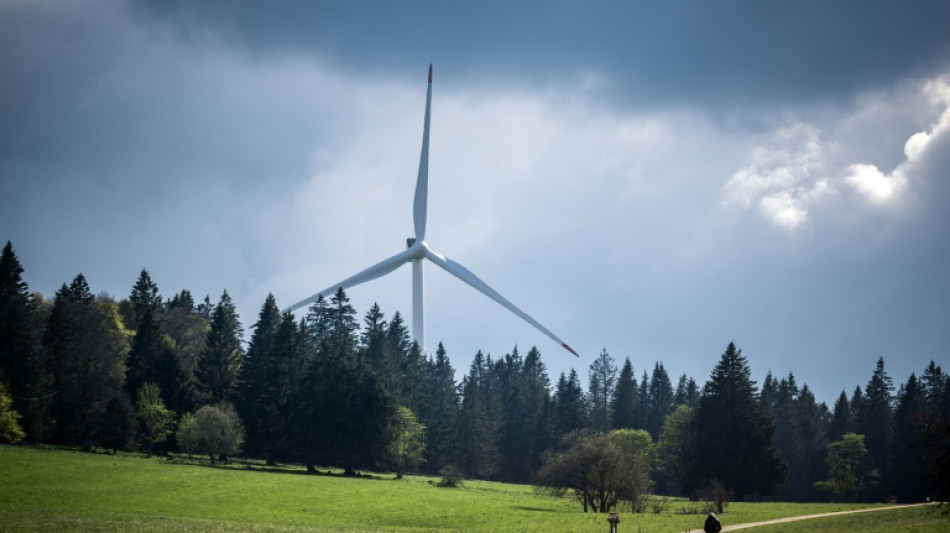
-
 EU in last-ditch push to seal climate targets before COP30
EU in last-ditch push to seal climate targets before COP30
-
Finnish ex-PM Marin says her female cabinet faced torrent of sexism
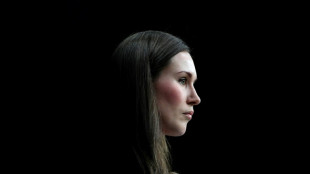
-
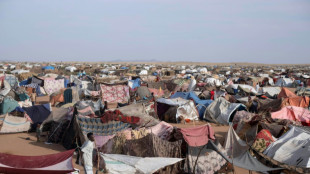 Sudan army-backed council to meet on US truce proposal: govt source
Sudan army-backed council to meet on US truce proposal: govt source
-
BP profit surges despite lower oil prices

-
 Shein vows to cooperate with France in childlike sex doll probe
Shein vows to cooperate with France in childlike sex doll probe
-
National hero proposal for Indonesia's Suharto sparks backlash

-
 Indian great Ashwin out of Australia's BBL after knee surgery
Indian great Ashwin out of Australia's BBL after knee surgery
-
Indian Sikh pilgrims enter Pakistan, first major crossing since May conflict: AFP
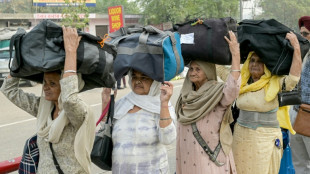
-
 Asian markets slip as traders eye tech rally, US rate outlook
Asian markets slip as traders eye tech rally, US rate outlook
-
Nintendo hikes Switch 2 annual unit sales target

-
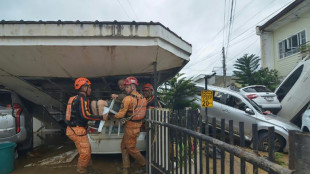 Typhoon flooding kills 5, strands thousands in central Philippines
Typhoon flooding kills 5, strands thousands in central Philippines
-
Jobe Bellingham finding his feet as Dortmund head to City

-
 US civil trial to hear opening arguments on Boeing MAX crash
US civil trial to hear opening arguments on Boeing MAX crash
-
Jamie Melham on Half Yours only second woman to win Melbourne Cup

-
 Myanmar scam hub sweep triggers fraudster recruitment rush
Myanmar scam hub sweep triggers fraudster recruitment rush
-
Biggest emitter, record renewables: China's climate scorecard
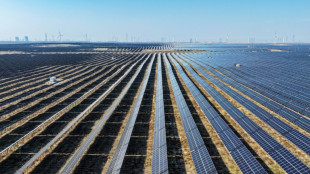
-
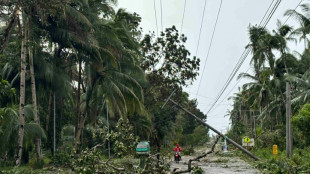 Floods strand people on roofs as typhoon pounds Philippines
Floods strand people on roofs as typhoon pounds Philippines
-
Asian markets swing as trades eye tech rally, US rate outlook

-
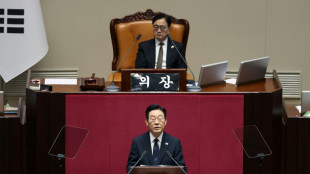 South Korea to triple AI spending, boost defence budget
South Korea to triple AI spending, boost defence budget
-
Trott to leave as Afghanistan coach after T20 World Cup

-
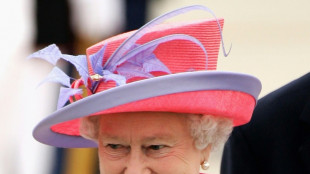 Late queen's fashion to go on show at Buckingham Palace
Late queen's fashion to go on show at Buckingham Palace
-
In Morocco, exiled Afghan women footballers find hope on the pitch

-
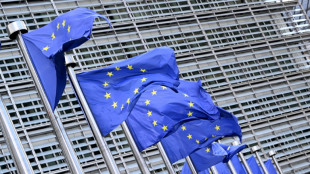 EU scrambles to seal climate deal ahead of COP30
EU scrambles to seal climate deal ahead of COP30
-
New Yorkers expected to pick leftist Mamdani in stunning election

-
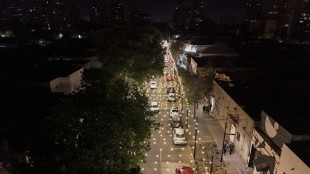 Pining for Pinochet: how crime fanned nostalgia for Chile's dictator
Pining for Pinochet: how crime fanned nostalgia for Chile's dictator
-
Why an Amazon chef said no to a vegan dinner for Prince William event

-
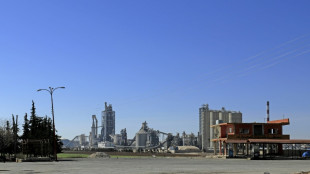 Cement maker Lafarge on trial in France on charges of funding jihadists
Cement maker Lafarge on trial in France on charges of funding jihadists
-
Worker dies after medieval tower partly collapses in Rome
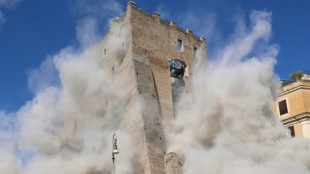
-
 Run-machine Labuschagne in form of his life ahead of Ashes
Run-machine Labuschagne in form of his life ahead of Ashes
-
Prince William plays football, volleyball in Rio on climate trip

-
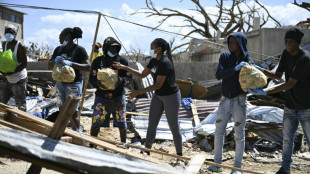 Jamaicans mobilize aid in aftermath of Melissa's wreckage
Jamaicans mobilize aid in aftermath of Melissa's wreckage
-
Starbucks cedes China control to Boyu Capital
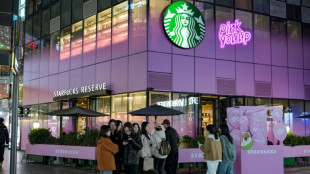
-
 'Wild at Heart' actress Diane Ladd dies at 89
'Wild at Heart' actress Diane Ladd dies at 89
-
Xhaka lifts Sunderland into fourth after Everton draw

-
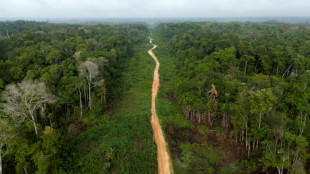 Brazil records biggest annual fall in emissions in 15 years: report
Brazil records biggest annual fall in emissions in 15 years: report
-
Victor Conte, mastermind of BALCO doping scandal, dead at 75: company

-
 Trial opens in 1st US civil case on 2019 Boeing MAX crash
Trial opens in 1st US civil case on 2019 Boeing MAX crash
-
Barrett brothers out of All Blacks' clash with Scotland

-
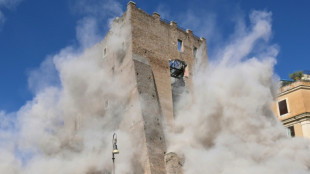 Medieval tower partially collapses in Rome, trapping worker
Medieval tower partially collapses in Rome, trapping worker
-
Arsenal's Arteta says injured Gyokeres out of Slavia Prague tie

-
 Alonso says 'quality' Wirtz helped get him Real Madrid job
Alonso says 'quality' Wirtz helped get him Real Madrid job
-
US Fed's Cook warns inflation to stay 'elevated' next year

-
 Blue heaven: huge crowds salute Los Angeles Dodgers in victory parade
Blue heaven: huge crowds salute Los Angeles Dodgers in victory parade
-
Dutch centrist Jetten clinches election win: final tally

-
 Mamdani extends olive branch to anxious NY business community
Mamdani extends olive branch to anxious NY business community
-
Sierra Leone chimpanzee sanctuary reopens after deforestation protest
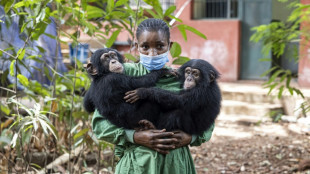
-
 Shein bans sex dolls after France outrage over 'childlike' ones
Shein bans sex dolls after France outrage over 'childlike' ones
-
England full-back Steward doubtful for Autumn rugby clash with Fiji

-
 Bayern know how to 'hurt' PSG, says Neuer
Bayern know how to 'hurt' PSG, says Neuer
-
Rybakina downs Swiatek to reach WTA Finals last four


Swiss vote to boost renewable energy: polling institute
Switzerland was on Sunday on course to approve a law aimed at accelerating the development of renewable energy as the country targets carbon neutrality by 2050, a polling institute said.
A first projection by the gfs.bern institute suggested 69 percent of voters backed the law on "a secure electricity supply based on renewable energies", confirming polling trends before the referendum.
Less than two months ago Switzerland became the first nation ever to be condemned by an international court for not doing enough to combat climate change, in a ruling by the European Court of Human Rights.
The new law was approved by parliament last year, and most environmental organisations back the legislation and its ambitions.
However, a few smaller environmental groups that oppose it managed to garner enough support to trigger a referendum.
They fear it will fast-track large-scale energy projects and see Switzerland's pristine Alpine landscapes plastered with wind turbines and solar panels.
They also deplore limitations on the possibilities for local residents to launch appeals against the construction of new renewable energy installations.
Retired economist Pierre-Alain Bruchez, who spearheaded the referendum push, said there was "no reason to put solar panels on mountain pastures, when there is so much space" on buildings.
He launched the battle after learning of the Grengiols-Solar project, aimed at installing around 230,000 solar panels in the mountainous Wallis canton, at an altitude of 2,500 metres, calling it a "vision of horror".
- Largest party opposes law -
Switzerland's largest party, the hard-right Swiss People's Party (SVP), opposes the law, above all in the name of defending civil nuclear power, which provided 32 percent of total energy production last year.
The SVP believes renewable energies do not guarantee energy security due to their fluctuating nature.
The law is backed by major non-governmental organisations such as Greenpeace and the World Wide Fund for Nature.
It aims to boost wind and solar power's current miniscule contribution to Switzerland's energy mix and rapidly increase hydro power production so that the wealthy landlocked country is less dependent on importing electricity.
The law envisages installing solar panels on building roofs and facades.
It also eases planning conditions for wind turbines and large solar installations.
The government acknowledges that court appeals against large energy projects "will probably be less likely to succeed than before".
But it stressed that projects would be examined on a case-by-case basis and constructing large installations in "biotopes of national importance" and migratory bird reservations will remain outlawed, albeit with some exceptions.
The law also outlines 16 hydroelectric projects, a sector which last year represented 57 percent of national electricity production. These involve building new dams or heightening existing ones.
- Votes on health issues -
Under Switzerland's direct democracy system, citizens can trigger votes on topics by collecting 100,000 valid signatures within 18 months. Voting takes place every three months.
At the cantonal level, in the Geneva region, a big majority voted in favour of banning the exhibition or wearing of symbols of hatred, in particular Nazi symbols, in public spaces.
National votes were also taking place on three popular initiatives -- topics proposed by the public -- linked to health.
One aims to cap health contributions at 10 percent of income, while another is also aimed at limiting health costs, with gfs.bern saying both propositions would be rejected.
A third, against the backdrop of the Covid-19 pandemic, does not mention vaccinations but demands a patient's consent be obtained for invasive procedures that may affect their physical or mental integrity -- and that a person who refuses consent may neither be penalised nor disadvantaged.
But the polling institute suggested the measure found little support among the electorate with some 75 percent voting against.
Geneva residents were also deciding whether to repeal a provision preventing nursing homes from refusing to allow assisted suicide on their premises.
S.Gantenbein--VB




